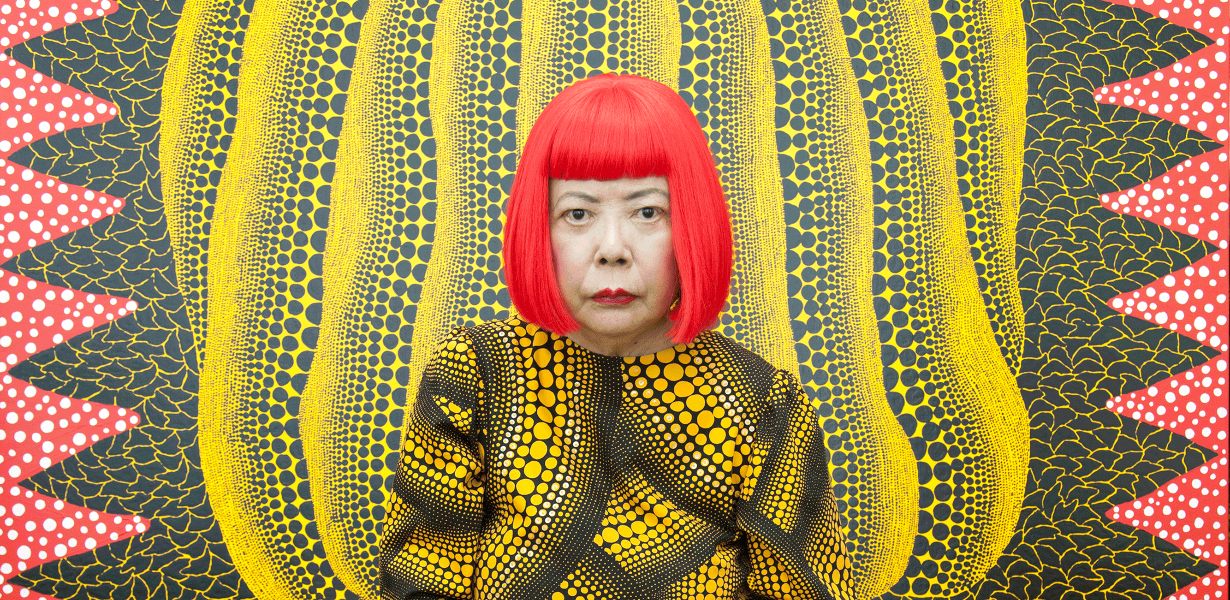
A history of racist comments and descriptions of Black people in the writing of Yayoi Kusama, has drawn criticism as a survey exhibition of the artist opens at the San Francisco Museum of Modern Art (SFMOMA).
As first reported by Vice News in 2017, in her 2002 autobiography the 94-year-old Japanese, who lives in a mental health facility, but whose output is at the centre of a multimillion dollar industry, writes of the apparent ‘animalistic sex techniques’ of Black people, and what she describes as their ‘distinctive smell’. In the book she describes working with a Black man in a past performance work, with lingering attention paid to her descriptions of his lips and genitals.
Kusama came to the fore in the avant-garde of the 1960s Greenwich Village scene, an area of New York she lamented had become a ‘slum’ because ‘black people are shooting each other out front’, the latter sentence removed from the English translation at the time.
Her 1971 play Tokyo Lee, features a Black character described as a ‘WILD-looking, hairy, coal-black savage’.
After the San Francisco Chronicle ran a comment piece last week criticising the city’s museum for its decision to show Kusama’s art, the artist provided a statement through the institution’s press office saying ‘I deeply regret using hurtful and offensive language in my book. My message has always been one of love, hope, compassion, and respect for all people. My lifelong intention has been to lift up humanity through my art. I apologize for the pain I have caused.’
The museum appeared to have anticipated the controversy, stating that its chief of education had already been planning a series public programmes addressing how institutions show the work of artists with ‘problematic histories’. Tickets to the exhibition at SFMOMA have sold out through the end of November.